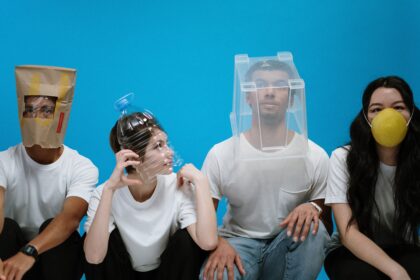Deciding what to donate
Becoming a minimalist can be a daunting task, especially when you’re a mom. Then again, what doesn’t become more difficult when you toss some kids into the mix? The hardest thing for me – as a mom striving to live minimally, was trying to decide which items I should keep and which I should donate. I still struggle with this today, even though I’ve been on my minimalist journey for a good four years now.
Surprisingly, the easiest things for me to go through were my own. Other than sentimental belongings and books, I have no issue with getting rid of all of my “things”. I have also learned to be honest with myself. I will never be an extreme minimalist, and that is okay.
Just because it’s easy for me to become unattached to my belongings doesn’t mean it’s as easy for my children. Shoot, I can barely donate their clothes without shedding a tear. I’m usually terrified that I will get rid of something they care a lot about. To be fair, I probably worry about this more than they do.
At the beginning of my journey, I didn’t throw away or donate their things. I felt it was unfair. Fast forward a few years, they had an overabundance of toys and outgrew many of them. I decided I needed to involve them in this process or we would all be buried alive. Just kidding. Sort of.
A few things I have learned about children and minimalism over the years
- Children usually have more than what they need
Seriously. Think about it and then observe. I guarantee your children have toys under their beds, stuffed in closets, and in several rooms of the house. If they’re like mine, you may even find a toy in the refrigerator from time to time.
- They will not notice toys that go missing, as long as you don’t donate favorites (but who would do that anyway?)
If you don’t trust me on this, once again, just sit back and watch. Instead of donating their toys, put them in a box, and hide that box. They will not mention those toys. Out of sight, out of mind. That really is how a child’s brain works the majority of the time. If by chance they do mention the toy, then you have two choices: you can pretend you found the toy, or you can keep it in the box and donate it when you feel comfortable.
- They are pretty great at letting you know which toys are their favorites and which stuffed animals are special
My daughter sleeps with a stuffed puppy that she has had since she was about 9 months old. Clearly, that is special to her. My son plays with Toy Story toys every day, its a no-brainer, these are his favorite toys.
- They are more creative and imaginative when given less
If you give children blocks or Lego’s what do you think will happen? If you’ve been around children you know they will build and then re-build with them. Houses, cars, barns, airplanes, you name it, they will try to build it. You give them barbies or baby dolls, they will take care of them by feeding them, dressing them, playing doctor, the list is endless. They are awesome and more imaginative than most adults.
But, if you take these same children and leave them in a room full of toys what do you think will happen? Do you think they will be able to focus the same as they did when presented with just a few toys? Nope. The majority of adults can’t even concentrate if put in a room packed full of things. So how is a child going to do that? What they will do is grab a toy, play with it for 5 minutes, set it down. Grab a new toy, play with it, set it down. This will happen until there are toys everywhere, they are bored, and the child did not engage in play. Sure, they looked at it, touched it, and thought about it; but did they sit there with it long enough to get anything from it? Probably not.
- They will learn to take better care of what they do have – when they have less
When children have toys all over the place they start to feel entitled and believe there is always more. If they have less, they will not look at toys or objects as unlimited. More than likely, the toys they have left will be ones they care most about anyways, so they will want to take care of them.
- They will eventually help you donate things they no longer love, so you won’t have to guess or feel guilty forever
This may take a while, depending on your child’s age and what they have grown used to. My daughter is 4 years old and she is just learning that it is nice to give to those who are less fortunate. She is also finally understanding that the more toys there are the more messes there are, meaning less time to play with mommy. My 2-year-old son is not there yet. Not even close. But, I believe in the system and know he will get there.
Photo by Anthony




